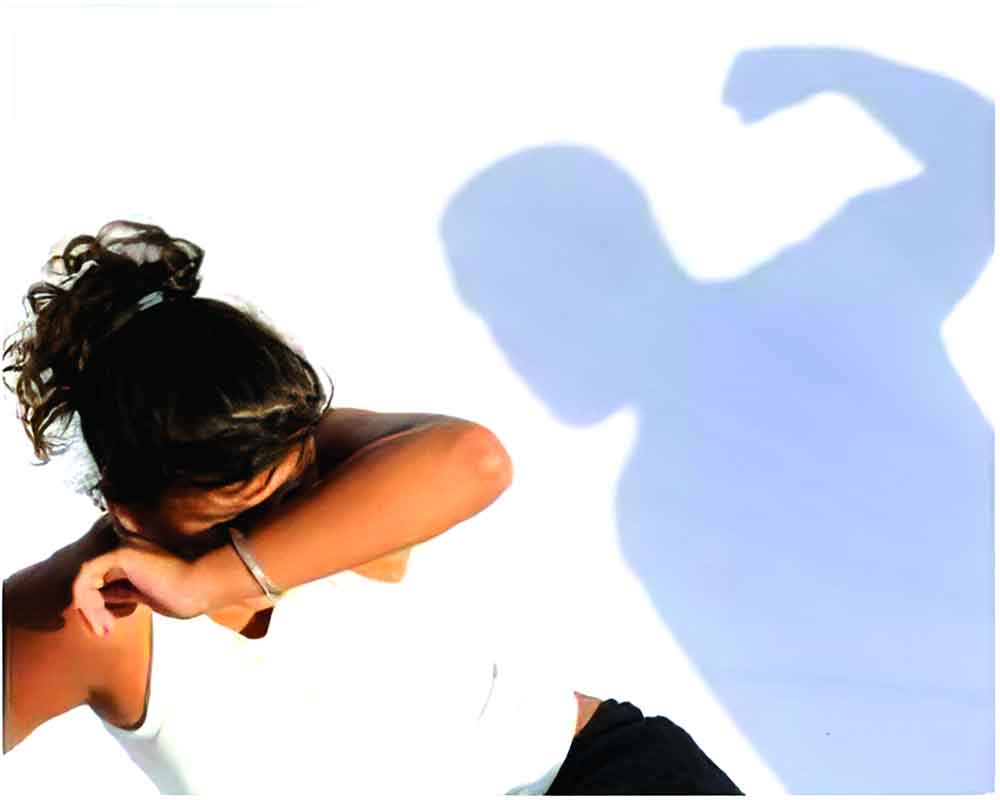Various studies concur that violence against women across geographies is unabated, while there’s abysmal reporting of cases
My husband cut my right hand off to stop me from working, but I will work and prove him wrong,” said 23-year-old Renu Khatun, a newly-appointed nurse in a government hospital in West Bengal’s East Burdwan district, while practicing to write with her left hand from the hospital bed a few days back.
In another part of the world in St. Petersburg in Russia, a 28-year old Margarita Gracheva's abusive husband, in a fit of rage, chopped both her hands off, who, now, with her artificial hands, is a co-host in a first of a kind Russian TV show that helps women fight against domestic violence.
As such gory tales of male aggression continue unabated, the WHO declared that ‘violence against women is a violation of human rights, and a persistent and major public health problem’. In the pre-pandemic world, it estimated that around 852 million women (15 years and above ) or 1 in 3 (30 percent) have been subjected to intimate partner violence (IPV) or sexual violence by a non-partner in a lifetime, with a varying prevalence rate across the WHO regions such as in the Western Pacific (20 percent), Europe ( 22 percent), Americas (25 percent), Africa (33 percent), the Eastern Mediterranean region ( 31 percent), and the South-East Asia region (33 percent). In India, it ranged between 33 and 41 percent.
In 2020, the UNWomen projected the grim reality of the ‘shadow pandemic’, which affected not less than 243 million women and girls as the victims of gender-based violence (GBV). In 2021, its 13-country survey confirmed that about 1 in 4 women felt less safe at home, while, almost 1 in 2 women, reportedly, became victims of GBV. The same trend continued in countries across the world with the USA, witnessing a spike by 8.1 percent and six other countries like Australia, Argentina, Mexico, India, Italy and Sweden, on an average, by 7.8 percent (Council on Criminal Justice).
While, assessing the IPV’s health impact, the WHO in 2013, made the world aware that it causes injuries with 42 percent of women, makes women 1.5 times more vulnerable to STDs, twice more vulnerable to an abortion, 16 percent more prone to a miscarriage, 41 percent a pre-term birth, and also twice as likely to undergo sleep and eating disorders and depression, whereas, child victims tend to become more susceptible to smoking, substance use, and risky sexual behaviours. The Global Burden of Disease (GBD) 2020 report, also estimated that IPV was the 19th-leading Level 2 risk factor for the disability-adjusted life year (DALY) in females, 11 percent due to depressive disorders and 13.9 percent for the HIV.
But, unfortunately, mainstream public health indicators couldn't fully capture IPV’s repercussions on the victim’s ‘emotional career’ or on the ‘quality of life’ (QOL). In 2021, a global research study, based on data from 151 countries, proposed a new synthetic indicator, the ‘Years women are expected to Live with Intimate Partner Violence’ (YLIPV) to measure the length of IPV during the prime of a woman’s life and its possible impact on QOL. The findings showed that, on an average, ever-partnered women (15-49 years), are likely to live 4.1 years (Lower bound 2.3 – Upper Bound 7.1), suffering from IPV during the age range. By region, it is 6.0 years (3.7–9.2) in Africa, 4.3 years (2.4–7.8) in Asia, 3.4 years (2.1–5.6) in Oceania, 2.6 years (1.5–4.2) in the Americas and 1.7 years (0.9–3.1) in Europe. In India, it is 6.2 years (LB 3.8-UB 9.6). However, the study noted that self-disclosure related problems and underreporting in IPV remained a huge drawback.
Nevertheless, the WHO’s multi-country study in 2021 divulged that 34–79 percent of women experiencing physical abuse by an intimate partner had never reported the incidents to anyone, and reports to formal sources ranged from 0.3 to 9.8 percent to police, 0 to 1.2 percent to NGOs, and 1.3 to 6 percent to medical services. In India, a longitudinal research study (2000-2018) by BMC Women’s Health, observed that there were severe gap and stagnancy in the administrative data, as India doesn't have any mandatory reporting mechanisms in hospitals.
As the public health policy makers express concern about the dearth of accurate IPV data, the social researchers raised the issue of social tolerance and inhibition that helps create a climate of silence. An European Commission survey (Eurobarometer) in 2016, apprised that even though a substantial percentage of respondents knew about incidents of IPV, either in their work place, or neighbourhood, or circle of friends, but, they refrained from disclosing and that 46 percent of EU citizens accept ‘provocative behaviour’ as a reasonable cause, indicating a high prevalence of victim blaming attitudes. A recent review of 23 studies in 61 countries, a mix of low, middle and high-income countries, also confirmed that the trivial issues like ‘burning a meal or serving it late, neglecting a child, or talking back to the husband,’ etc., have been treated as justifiable grounds, while, in a high-income country like the USA, grounds like ‘infidelity’ or women ‘asking for it’ are still considered as tenable explanations. In India, the NFHS (2019-20) findings validated that at least 30 percent of women supported husband’s beatings for reasons like ‘neglecting the house’ or being ‘argumentative’, or ‘going out without informing the husband’, or ‘not cooking good food’, etc.
Notwithstanding, the panacea doesn't only lie in public health interventions or legal routes. Since gendered violence is the outcome of biased socio-cultural factors, the focus should also be on behavioural change strategies for gender role transformation and reducing the relationship power-gap.
The author is former Director-General, Doordarshan & All India Radio, and former Press Secretary to the President of India


























